BudgetDrive
BudgetDrive is all about understanding the best ways to save and budget.
Firstly It’s not easy. There are a number of sites that talk about different ways to save money. But it’s like dieting and becoming healthier – that is, easy to say, harder to do.
Today we live in an ‘instant coffee’ world whereby many people want everything yesterday and want the latest things every year.
Managing your money is all about creating new habits. They say to kill one habit you need to start another and stick to it for at least 21 days. Most people start to budget when they have to rather than proactively planning.
Managing your money is quite simple – you have money coming in and money going out. You can borrow money easily and lenders will tempt you with special offers.
The UK has the highest personal indebtedness in the world because we always want ‘a newer model’ now and we can buy it on credit.
Money management can also fail if we are not happy with our lives; if we have had a hard month at work and we think blow it, I will buy a new dress, shirt,shoes, or go out on the town. It’s a short term comfort blanket to appease your feelings but the next month you’re fretting because you don’t have enough cash to pay for everything.
Click on a heading below and see a summary, and if you're interested you can GO and read more about it!
Here are some initial thoughts about budgeting. GO!
Here are some facts and stats about budgeting. GO!
This is a whole system for sorting out your financial plan. GO!
Here are some hints and tips for doing your budget. GO!
One of the main reasons budgets fail is that people impulse purchase. See why. GO!
See some ideas on how to avoid making impulse purchases. GO!
See how you can make money by selling stuff you no longer need. GO!
Make sure you switch suppliers to take advantage of best prices. GO!
See how to format a budget. GO!
If you’re a visitor to our site you can join and download information, assess your own health and create your own action plans, and even contribute to our site. GO!
See what you can do next. GO!
We have some additional information on this subject. GO!
Some Initial Thoughts
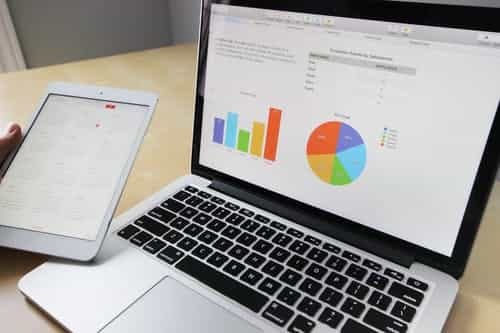
Creating and managing a budget isn’t easy - it’s an art
Learning to budget is not just about saving on the weekly shop but your whole finances
Forming a budget is the first step when building a solid financial foundation. The goals of a personal budget are as follows:
- Quickly show your “before expenses” and “after expenses” estimated balance
- Track paid vs pending expenses
- Track upcoming expenses (forecasting)
- Track the amount of money going to each expense
- Identify and develop trends to optimize your budget
Keeping the budget simple and building upon it is a great way to get started.

More than 1 in 5 (22.9%) say they make impulsive purchases every week
How to stop impulse buying
Avoid temptation. The best way to stop an impulse purchase? ...
Stop and consider. ...
Create and stick to a budget. ...
Think about your motivations to make an impulse purchase. ...
Limit your cash and credit. ...
Stay off social media. ...
Remind yourself of your goals.
This is a HUGE subject which we’ve broken down into sections which you can visit
Facts About Budgets
weekly grocery bill for a family of 4 in the UK is £99 up from £89 Source ONS
67% of people have a budget – 33% don’t maintain a budget. Source ONS
Average family spend is £451 a year ordering in takeaway food; source familymatters.co.uk
(67%) buy nail care products on a monthly basis. Average person spends £450 a year and has 24 nail manicures
annual, average household spends £915 on alcohol. £18 a week
The average household imagines they’re spending £29 on subscription fees per month, which is only 19.5% of the average £149 per month they are actually spending. Source idea home.
The average person in the UK is spending almost £4,500 on their looks throughout the year. Source TotallyMoney.com
Leeds average £7,000. London average £6,300 annually.
In 2019 UK households spent 16% of their budgets on food and non-alcoholic drinks. Another 3% of budgets went to alcohol. Source: ONS
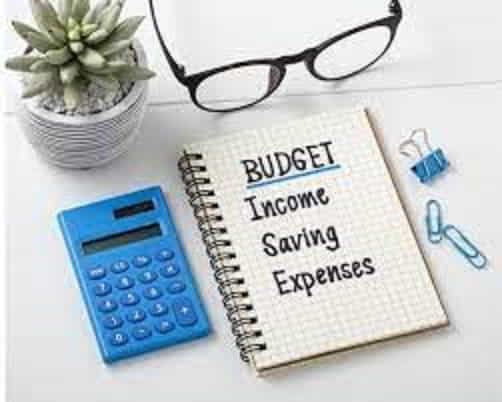
Map out your financial plan
We have done our own 10 step financial planning template you can look at and download. It doesn’t just consider how to do a budget, but gives some tips on how to decide what’s important to you and how to balance the short term immediate issues with looking to the future.
Following this will give you ideas on how to prioritise your spending.
It's not trite stuff about spreadsheets - it considers what's most important to you. We guarantee that following these 10 steps is a realistic way to approach your budgeting and financial life.
See the plan below, with the 10 steps set out under five headings.
Click on any of the tabs on the right to see more information
- It’s not about money, it’s about what the money is for. You need to ask yourself: “Why is money important to you?” Keep answering this question until you get to the answer that really matters to you. You’ll know. Then write it down. Then use this as as a yardstick for every financial decision you make in the future – if it helps this goal then do it, if not, think twice.
2. Basics – somewhere to live and something to eat
This is about key responsibilities – don’t worry about the other stuff if you can’t do this. If this is hard, then look at DebtDrive here to see what help you can get.
3. Pay your bills
If you can, this means pay all your bills and also make sure you pay the minimum amounts on your debts. If you can’t manage this, look at our section on debt here.
4. Spending and Saving – it’s not just about building your budget. It makes things a lot easier if you also develop a system to manage this on a regular basis – it takes the work out of it and you’re more likely to continue. There are 4 steps to this:
a. List your spending – split this between essential or household spending (what you need to carry on living and eating!) and discretionary spending (stuff you could do without if you had to). You can download budget spreadsheets from BudgetDrive More Info.
b. Automate your spending and savings – move money automatically into saving and budget accounts BEFORE you get a chance to spend it.
c. Look at odd expenses – look at irregular expenses like Christmas and save for them ahead of time so you can afford them.
d. Build the right habits – look at the habits which cost you unnecessary money and introduce new habits where possible.
The order of these next three items will vary – we think this is the right order but it may be different for you!
5. Build an Emergency Fund – there’s always something unexpected, and when you’ve got responsibilities e.g. to a family you’ll need at least £1,000-£2,000 in a savings account, which is enough to deal with most unexpected expenses.
6. Get insurance – if there are people who depend on you and your income financially then you should put steps in place so that if anything happens to you they can continue to live and eat. This can involve life insurance and critical illness – to see more go to InsuranceDrive here.
7. Consider estate planning and do a will – whether you’ve got money or not, it’s important to understand what would happen if you died. If you have children, what will happen to them? You should make a will – see WillDrive here.
Once you have got financial security, start to look at how to become financially free.
8. Pay down expensive debts – all your expensive debts cost you more than you are likely to make on savings and investments, so it makes sense to pay these off first if you can.
9. Put extra money to use – you decide the right order for you – these are some things you can do:
a. Pay in to your pension – workplace pension or private – try and put in up to the maximum your employer will – this gives you an immediate 100% return and there are good tax benefits.
b. Next Emergency Fund – build this up ideally to 6 months living expenses
c. Pay off low interest debt – again this is still likely to give you a better return than savings!
d. Invest for the long term – ISAs are a good way to save, and the money is always available.
e. Schooling for kids – this could be helping them get through university or college.
10. Do what’s important to you – go back to what’s important (in step 1) and see what you really want to do – what’s your adventure?
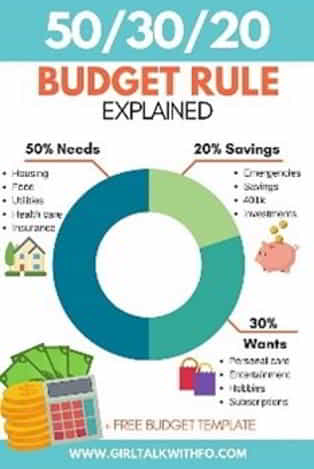
Tips for doing your budget
There are loads of tips online for doing your family budget – we’ve come up with our favourites in this list:.
We can recommend the 50/30/20 rule, which breaks down your after-tax monthly income into three budget categories:
1. Needs
These are expenses that you must pay in order to live and work, such as a mortgage or rent and groceries. They should account for about 50% of your spending.
2. Wants
These are expenses that don’t qualify as needs and don’t include your savings and payments toward debt. If you can live and make money without it, it’s probably a want. This should be 30% of your spending. Wants vary widely according to who you are and your situation, so someone's needs are someone else's wants. .For example, if you go to the gym as part of your training for your career as an athlete the costs are needs, but if it's to keep trim it’s a want.
3. Savings and debt repayment
This category includes expenses that help your future self and should account for 20% of your income. Use this category for building an emergency fund and setting aside money for retirement.As for debts, focus first on high priority debt you may have, such as high-interest credit card or other loans (see DebtDrive). This category could also include payments beyond the minimum balances on lower-rate debts, like a mortgage. (See DebtDrive to see the difference between good and bad debt.)
Click on any of the tabs on the right to see more information
Make sure everything is included, and don’t guess! It doesn’t matter if it’s on a spreadsheet or on paper – get everything down. Look at six months of statements – remember some bills are quarterly. Remember cash!
Separate fixed costs (rent/mortgage, utilities, car and other insurance costs, etc) from discretionary costs (eating out, travel, gifts, etc.).
This includes ‘treats’ and holidays. Don’t miss bits because they’re unusual. Remember takeaways and alcohol spend as well as haircuts/nails and beauty products. Include impulsive buying. As much as 20% of costs come from ad hoc buying at the shops of petrol stations.
For unexpected costs and also treats – say 10% of food costs. Also round up costs – so £40.18 becomes £41. Beauty procedures and day outings and treats include.
if you have debt, allocate more than minimum payments. If not, allocate money for savings, and have a goal. Identify the highest debt interest or largest monthly payment to remove. Consider debt consolidation.
Some experts recommend putting money in envelopes and not using the tempting debit card! Make a promise not to impulsive spend at the supermarket or shops and avoid ego spending to make you feel better.
Plan your month’s spending in advance, and review it!
This allows you to reallocate between ‘pots’ if needed. If you are doing well and sticking to budget build in a treat for you or your family. It does not need to be painful.
If it went wrong, because you missed something, or you just caved in after a bad day, try again!
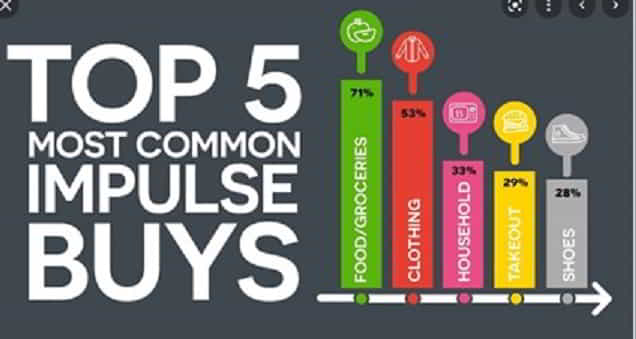
What are the main reasons we impulse buy?
Enjoyment, we tend to pick up things that make us happy.
Loss aversion.
Spending on children who you feel may deserve a treat.
Short term injection of pleasure when feeling depressed.
Thinking you've spotted a bargain.
The need to stockpile.
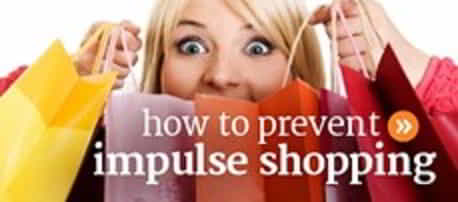
Simple tips help you avoid impulse buying instore and online
Time Out! Come across something that you would like to buy?
Shop with a list
Don't buy for the wrong reasons.
Use cash instead of credit card.
Give yourself a no-spending challenge
Don’t Shop when hungry or drunk
Spend within budget.
Avoid online spending whilst intoxicated, you will always regret it.
Unsubscribe from retail newsletters, mailers and special deals
Think about the last purchase you regret
Try selling some of your old junk
A surprising number of common household waste items are being sold online. The most valuable individual items we've seen are empty perfume bottles, with some selling for as much as £37 each, though about £2-£5 is more typical.

Become a switcherholic
Less than 50% of people change house, car, contents, credit cards, mobile and internet contracts every year. Most people do not get into the habit of switching their may suppliers every year. Statistically people switch every 3 to 4 years because they cannot be bothered..
One of the main reasons for not switching is because it is seen as a chore with 43 per cent of over 24-year-olds saying it is a hassle – a figure which rises to 55 per cent amongst 18 to 24-year-olds. This is money.com
Budget format
To go to the Money Helper (formerly Money Advice Service) Budget Planner, click the button below. For the others, go to ‘More Info’ below.
For visitors
Why don't you join us?
You can register to join us as a member, when you’ll be able to download our stuff and comment, or as a YouDriver when you’ll also be able to check your health and set up your own action plans to make some improvements. If you’ve already registered, sign in below. Or let us know what you think.
Martin Lewis on budgeting
Budgeting
This video from Martin Lewis explains what’s needed to do a budget in real terms – allows you to set up a budget. Note you can download the Excel spreadsheet used at the bottom of this page!!
Budgeting for Beginners
This video from Elena Taber describes her favourite apps and tips in a modern view of budgeting,
Budgeting for Beginners


Next Steps
It doesn’t matter what stage you’re at – it’s important to be the best you can be. At the end of the day it’s about taking personal responsibility – You Drive!
It’s really your choice. You can find out more information about the subject, or see other institutions that can help by going to Support. There you will find organisations, training, coaching, self-help courses and other items to support your personal change. We have also started developing a panel of experts to provide info, advice, help and support.
Get Support
There are times when you need some help to meet your aims – a helping hand. That might be an organisation that can provide you with some help, some specialised information, a particular book or tool to help, or just getting some background reading material.
We have a lot of items which appear on our Drives and other pages, which you can go to by clicking on the picture or link. Some contain affiliate links and we may receive a tiny commission for purchases made through these links.
If you know of anything which could help you or our other visitors then please click the button on the right, which will take you to a Contacts page where you contact us.
Experts
We are compiling a list of experts who can provide advice, help or specialised services. You will be able to access these experts from anywhere on our site you see our ‘Experts’ symbol. Click the green E to see what our Experts list will look like, with a couple of imaginary ‘experts’ added!
More Information
Scroll down to see more information on this Drive.
If you register you can also download reports, white papers, quizzes and other collaterals. We will never ask you for any financial information, and we’ll only send you the information you want. You can register for our site either above or in the footer below. You can provide your own questions and experiences in order to help other members. We only moderate for spam and inflammatory language – see our moderation policy.
If you’ve found this interesting, then please share it on social media. Choose your network!
More information
How to budget and manage your money
Financial Planning Book for Beginners. How to Save Money Faster, Pay Off Debt and Control Your Finances: 1 (Smart Personal Money Management Series Book)
Do you want to learn how to manage your money better?
Perpetually broke – living beyond your income
What they didn’t teach you in School, how to Manage your Money, Pay off Debts, get a Money Makeover and … Prosperity by 40 (Personal Finance Wizard)
Do you want to discover devastatingly effective secrets for MONEY MANAGEMENT, basic PERSONAL FINANCE and HOW TO BUDGET?
The RICH Method
The definitive guide to getting money and success. Reduce your expenses, clear your debts, learn to save and invest, and reach your financial freedom
Have you ever wondered what rich people did to get where they are?
Grandpa’s Fortune Fables
Fun stories to teach kids about money
The Money Book That Adults Wish They Had Read As A Child.
This free 10 week plan from Money Helper helps you build confidence to manage your money.
Use the Money Helper budget planner to plan your budget
StepChange the leading debt charity have a section on budgeting – why it’s important, how to make an income and expenditure statement if you need one and how to manage your budget.
If you want an app to help you budget, see the list of the 6 best personal finance apps of 2022 at Investopedia
There’s a template for budgeting from StepChange, the Debt Charity – in Excel so you can enter your own numbers
There’s a template for budgeting from StepChange, the Debt Charity – in PDF format so you can print and enter your own numbers manually
There’s a template for budgeting from MoneySavingInspiration in Excel
There’s a template in Excel you can use from MoneySavingExpert for setting up your budget


















